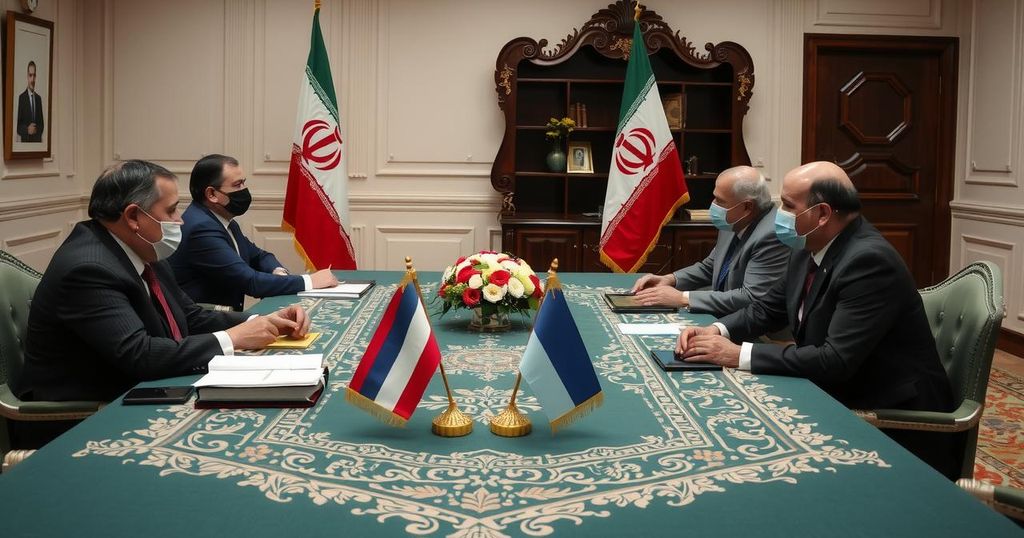Iran has summoned Saudi Arabia’s ambassador to protest the execution of six Iranian nationals convicted of drug trafficking. The Iranian Ministry of Foreign Affairs described the actions as unacceptable and a violation of international law, emphasizing the need for an explanation from the Saudi government. A delegation is set to visit Riyadh for further discussions, as the country remains under scrutiny for its high execution rates and lack of transparency in capital punishment cases.
Iran has officially summoned the ambassador of Saudi Arabia in Tehran to express its strong objections regarding the execution of six Iranian nationals, who had been imprisoned on charges related to drug trafficking. The protest was communicated through a formal note as announced by Karimi Shasati, Director General of the Consular Affairs Office at Iran’s Ministry of Foreign Affairs. The Iranian government highlighted the discord between these executions and the anticipated progress in judicial cooperation between the two nations, demanding clarification from the Saudi authorities. Shasati remarked that efforts had been continually made by Iran to provide consular assistance to these individuals and to pursue opportunities for reducing their sentences.
Moreover, Shasati condemned the Saudi decision to execute these individuals without prior notification to the Iranian embassy, labeling such actions as “completely unacceptable” and a breach of international law, notably the Vienna Convention on Consular Relations. He further announced plans for a legal and consular delegation from the Iranian Ministry of Foreign Affairs to visit Riyadh to seek follow-up regarding the situation. Concurrently, a report released last year by Reprieve and the European Saudi Organization for Human Rights cited a concerning statistic whereby Saudi Arabia executed over 1,200 individuals between 2010 and 2021, ranking it among the highest execution rates worldwide, with actual figures reportedly obscured by governmental secrecy.
The relations between Iran and Saudi Arabia have historically been complex, influenced by regional politics, sectarian divides, and mutual suspicions. In recent years, there have been attempts to improve diplomatic ties and collaborate on judicial matters. However, incidents such as the execution of Iranian nationals on charges like drug trafficking disrupt this progress and provoke significant diplomatic tension. The legal framework surrounding consular relations, particularly the Vienna Convention, emphasizes the necessity of notification and cooperation between nations when it concerns their nationals facing legal consequences abroad. This incident highlights the ongoing concerns related to human rights practices in Saudi Arabia, especially regarding the transparency and processes of capital punishment. Furthermore, human rights organizations have consistently criticized the Saudi judicial system’s lack of transparency, particularly in matters involving capital punishment, which is often carried out without prior notice to the countries involved. The Iranian government’s response reflects a broader concern about the treatment of its citizens abroad and emphasizes its stance on international legal standards.
In conclusion, Iran’s summoning of the Saudi ambassador underscores the serious implications of the recent executions of Iranian nationals in Saudi Arabia. The Iranian government’s call for accountability brings attention to the heightened diplomatic tensions between the two countries in light of this incident. It also emphasizes the need for transparency and adherence to international legal practices, particularly concerning the treatment of individuals facing severe penalties in foreign jurisdictions. As diplomatic efforts continue, the necessity for clear communication and mutual respect becomes increasingly critical.
Original Source: www.presstv.ir






